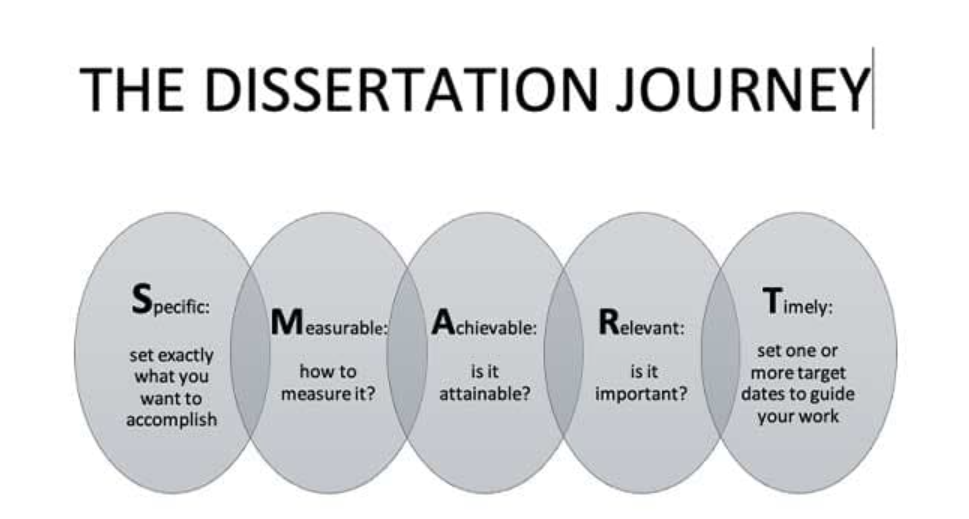The dissertation is a word can send shivers down the spine of even the most confident graduate student. It’s the culmination of years of study, a significant piece of research, and a stepping stone towards your academic future. However, before you can even begin to think about research methods, data analysis, or crafting the perfect conclusion, you must first confront the daunting task of selecting a suitable topic for a dissertation.
This is arguably one of the most critical decisions you’ll make in your academic career, and getting it right is crucial for success. Choosing the right topic for a dissertation can make the process engaging, rewarding, and contribute meaningfully to your field. The wrong choice can lead to frustration, a stalled project, and wasted time. So how do you navigate this challenge?
This article provides essential tips to help you choose a topic that’s not just academically sound but also personally engaging.
The Importance of a Well-Chosen Dissertation Topic
Before diving into specifics, let’s briefly touch upon why the selection of your topic for a dissertation is so vital. A well-chosen dissertation topic is:
- Motivating: It fuels your passion and makes the long journey of research more enjoyable and less of a burden.
- Manageable: It’s appropriately scoped, allowing you to complete the research within the given timeframe and resources.
- Relevant: It aligns with your field of study, contributing to the existing body of knowledge.
- Feasible: It allows access to the necessary data, resources, and expertise.
- Career-Enhancing: It can align with your long-term career goals and demonstrate your expertise in a particular area.
Steps to Choosing a Compelling Topic for a Dissertation
Now, let’s explore a systematic approach to selecting your perfect topic for a dissertation:
1. Self-Reflection and Exploration
- Identify Your Interests: What truly excites you within your field? What are you genuinely curious about? Don’t just think about what you think you should research; consider what intrinsically motivates you.
- Think about the courses you enjoyed the most, papers you found engaging, or any debates that sparked your intellectual curiosity.
- Brainstorm a list of potential areas or questions that pique your interest.
- Assess Your Strengths: What are your key skills and areas of expertise? Are you good at quantitative analysis, qualitative interviewing, historical research, or theoretical argumentation?
- Choose a topic that plays to your strengths, ensuring you feel confident in your ability to conduct thorough research.
- Consider any prior experience you have in research methods or specific topics.
- Reflect on Your Career Goals: How does the potential topic for a dissertation fit into your long-term professional aspirations?
- Consider a research topic that aligns with the skills and knowledge you need for your desired career path.
- Think about how a particular topic might make you more competitive in the job market.
2. Broadening Your Perspective and Discovering Research Gaps
- Review the Literature: Conduct a thorough review of existing scholarship in your broad area of interest. This step is crucial for identifying potential dissertation topics and avoiding redundancy.
- Use academic databases, online journals, and books to find the most relevant and influential research in your area.
- Look for areas that have been under-researched, debated, or that require further investigation.
- Note any recurring themes, questions, or methodological limitations that could be your starting point.
- Attend Conferences and Workshops: Engage with other researchers in your field, and be open to new and emerging ideas.
- Conferences provide a valuable opportunity to learn about cutting-edge research and network with experts in your field.
- Workshops can offer guidance on specific methodologies or theoretical approaches, helping you narrow your potential topic for a dissertation.
- Talk to Professors and Mentors: Seek advice from faculty members, advisors, and mentors who have expertise in your field.
- Discuss your ideas with them, ask for feedback on potential research avenues, and leverage their experience to guide your decision.
- They can help you refine your ideas, identify potential challenges, and point you toward suitable resources.
- They may be aware of existing research gaps or emerging areas that you could explore.
3. Refining Your Ideas and Formulating a Research Question
- Narrow Your Focus: Once you have a list of potential topics for dissertations, start narrowing them down. A broad topic can lead to a superficial study, so it is important to develop a focused research question.
- Consider refining your idea to focus on a specific geographic area, population group, time period, or theoretical angle.
- Ask yourself if the topic is too broad or ambitious for a single dissertation.
- Develop a Research Question: A clear and focused research question is essential. It guides your research and provides a clear roadmap for your dissertation.
- The research question should be specific, measurable, achievable, relevant, and time-bound (SMART).
- It should be open-ended, allowing for exploration and in-depth analysis, rather than a yes-or-no question.
- Consider Feasibility: Before fully committing to a dissertation topic, consider the practical aspects of your research.
- Do you have access to the necessary data, resources, and participants?
- Is the chosen methodology appropriate for your topic and your skillset?
- Do you have the necessary time and resources to complete the research within the allocated timeframe?

4. Finalizing Your Choice and Moving Forward
- Test the Waters: Before committing, conduct a preliminary study or pilot project to test the feasibility of your research question and methodology.
- This can help you identify any potential issues and refine your research approach.
- It can also give you a taste of the actual research process.
- Seek Feedback Again: Present your refined topic for a dissertation and research question to your advisor and peers for a final round of feedback.
- Be prepared to discuss the merits of your choice and be open to suggestions for improvement.
- This feedback can help you refine your plan and avoid potential pitfalls later in the research process.
- Commit and Get Started: Once you are confident in your choice, commit to your research topic and develop a detailed research plan.
- This plan should include a timeline, methodology, data collection strategies, and a detailed outline of your dissertation.
- It is important to establish momentum at the outset, and regular progress can keep your spirits up during the challenging process of writing a dissertation.
Common Pitfalls to Avoid when Choosing Dissertation Topics
- Choosing a Topic that is Too Broad: As previously mentioned, this can lead to a superficial study and make it difficult to draw meaningful conclusions.
- Choosing a Topic that is Too Niche: Conversely, a topic for a dissertation that is too narrow may not have sufficient scholarly interest or available resources.
- Choosing a Topic Solely Based on External Pressure: Choosing a topic that you are not genuinely passionate about or don’t find intellectually stimulating is a recipe for a miserable research experience.
- Underestimating the Time and Resources Required: A lack of planning and underestimation of the required time can lead to delays and frustration.
Final Thoughts
Selecting a suitable topic for a dissertation is a crucial step in your academic journey, but it shouldn’t be overwhelming. By taking the time to self-reflect, explore the literature, seek guidance from mentors, and refine your ideas, you can identify a dissertation topic that is not only academically sound but also personally engaging and contributes meaningfully to your field.
Choose a topic for a dissertation that excites you, leverages your strengths, and aligns with your career goals. Ultimately, the right dissertation topic will make the research process more rewarding and pave the way for your success. Choosing the right topic for a dissertation requires careful consideration and planning, but the effort will pay off in the long run. Remember to think about the best topics for dissertations for you and your academic goals.
Get Customized Dissertation Writing Help
Choosing a compelling topic for a dissertation may still be a daunting task even with all the above resources. However, you can easily avoid the stress with professional help from Exemplary Dissertations. We are the dissertation experts to engage for help with choosing topics, dissertation writing, proofreading, editing, formatting and plagiarism removal. Our writers can also assist you with essays, research papers and case studies.

